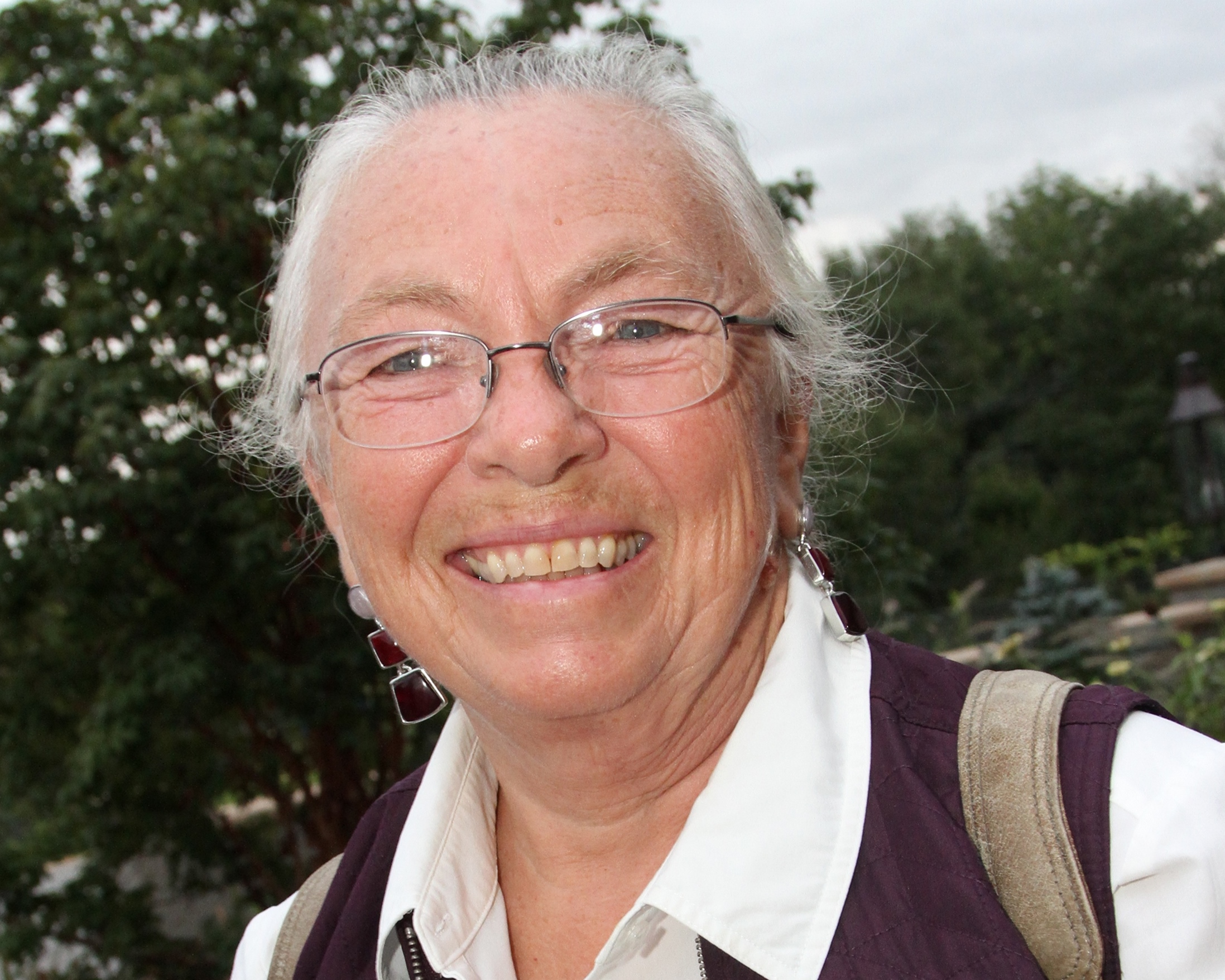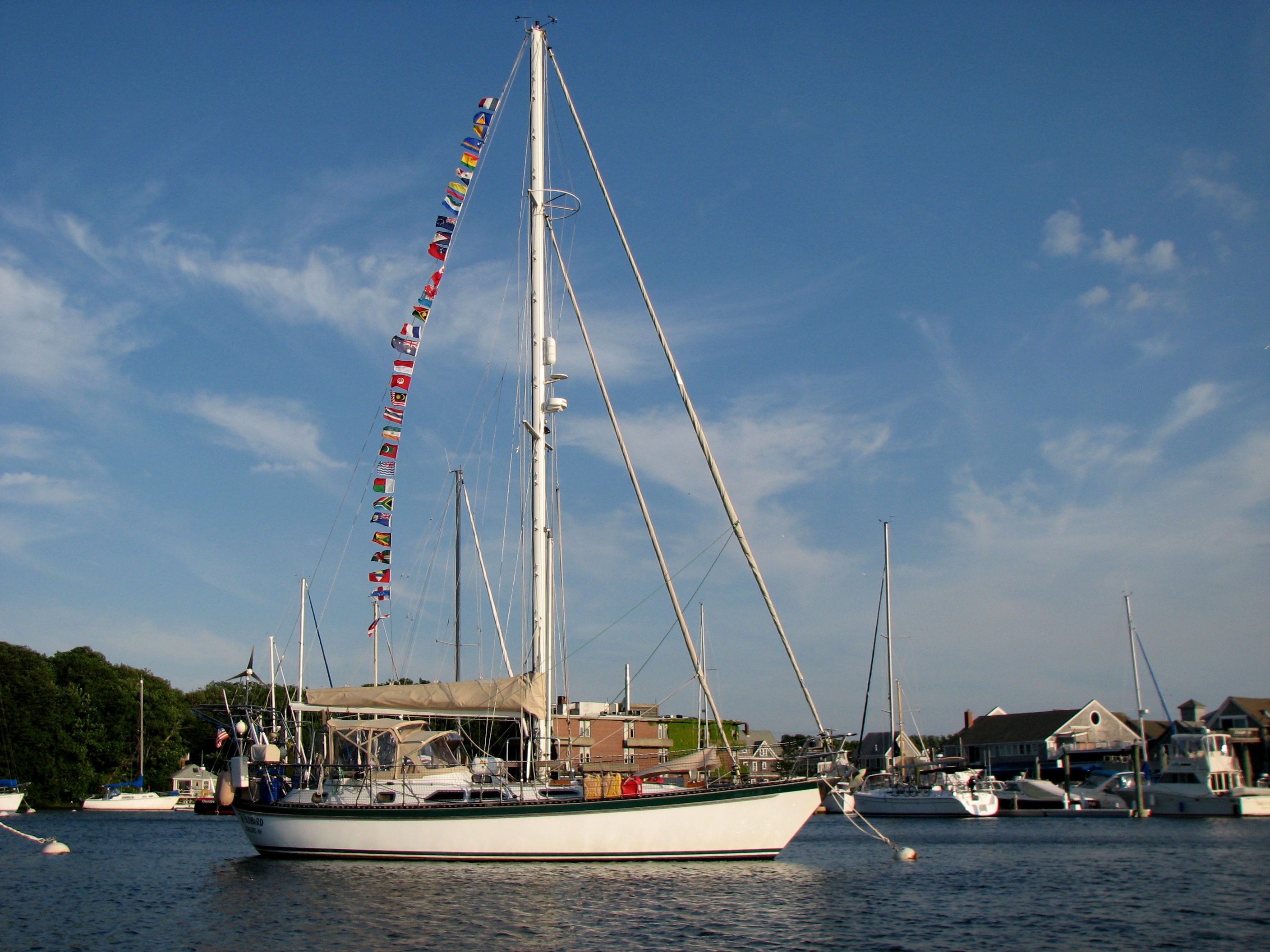Day 94, Year 6 Passage to St. Helena, Day 9–Watermaker No More
Date: Wednesday, January 26, 2011, 1430 UTC
Weather: Partly Sunny; Winds SSE 15 (+5/-5)
Temperature: Water 68 degrees F; Air 69 degrees F
Latitude: 24 44.381 S
Longitude: 000 31.211 E
Miles Traveled: 1228
Miles to Go: 640
Location: Passage from South Africa to St. Helena
Before getting to the watermaker woes, I’ll just mention that the last 24 hours were identical to the previous 24-bright and sunny from 3 pm to 6 pm, then a 100 per cent cloud cover that drops like a curtain as the sun sets and remains until the next afternoon. Winds are 15 knots, plus or minus 5 knots, from the SE or SSE, increasing to 24 from about 10:30 pm to sometime in the middle of the night. We also had extra fluky winds this morning with dark gray clouds and periods of 25 knots. We are sailing perfectly downwind and therefore rolling a bit, but all is well. At the suggestion of Alan Kanegsberg, a friend from back home, today Mark installed a make-shift preventer to replace the one that we broke a few days ago. This arrangement take a long line that is attached to the back end of the mast, taken forward and put through a block at the base of the chain plate at the bow and then brought back to the aft of the boat and cleated off. Alan emailed that Don Street, a sailor-writer, promotes this type of arrangement. So, Alan, thanks for the suggestion.
As fate would have it, Mark’s sister Mary Ellen is once again going to have to bring us watermaker parts. When we were on our way to Tahiti from the Marqueses in the Pacific during our first year of this voyage, our water maker failed. Back then we had a SAT phone, so we called West Marine to order a new one and Mark’s sister Mary Ellen and husband Lee delivered to us when they joined us in Papeete. Just yesterday Mary Ellen emailed confirmation that they will once again join us, this time when we arrive in the Caribbean in Grenada. Mark’s brother Steve will also join us there and his other sister Jeanie will meet all of us in St. Martin about three weeks later. Mary Ellen doesn’t know it yet, but once again she is going to come to our rescue, albeit a bit late for this long passage across the Atlantic. This time we don’t need a complete watermaker, just the rebuilt kit, but without a couple of gaskets in that kit, our watermaker is not going to run. I had high hopes that Mark could get it working, but not so. I did not realize that we didn’t have a full rebuild kit. I guess we had this same problem somewhere, used the critical gaskets, and forgot to order more. Since there is no airport in St. Helena, there is zero chance of getting anything sent there. So we are going to seriously practice water conservation. We have never had to use salt water for washing our dishes, but we will start that when we leave St. Helena. You wash with salt water and rinse with fresh. The salt water pump in the galley hasn’t worked forever, but we do have one in the aft head that we never use, so Mark will take that one and replace the faulty one in the galley. We will also limit ourselves to one shower a week. Some of you remember when it was the norm to have only one bath a week, so we are just going back in time a few decades. I’ll use the shower water to wash essential clothing, but I think the laundry bag will be very full by the time we reach Grenada. When reading about the anchorages there, I see the word “laundry” and that will be a welcome sight! We will buy as much extra water as we can in St. Helena and then just discipline ourselves for the next month or so.
And while speaking of going back in time, I’ll share some of the comments about St. Helena written by Simon Winchester in Atlantic, the book I am currently reading. I guess ‘studying’ is really what I am doing. I read and reread and mark important facts, but I’m starting to realize that every single page is just jam-packed with information about the Atlantic that I want to remember. In one chapter Winchester writes about some of the great cities on the Atlantic. He mentions New York City, Cape Town, Santo Domingo on Hispaniola, Cadez in Spain, and then Jamestown on the island of St. Helena. At some point in his reporting career, Winchester was sent to St. Helena to write a story about a Saint (the term still used to refer to people who live on St. Helena) who had committed a murder and was to be sent back to England for trial. Before leaving England, Winchester writes what he had learned about St. Helena before departing England. “There were seldom crimes of any seriousness on the island, I had been told-in fact, most islanders were so well mutually disposed that there was an alarming abundance of bastard children, known when they turned up at weddings as “spares.” I was also told the local policemen had very little to do and were known as “the toys”; and that the Jamestown jail was so small and made so stuffy by the equatorial heat that inmates were let out each afternoon to go swimming in the Atlantic.” He decided that this was a kind of place that he just had to see: “a mid-ocean colonial possession of great antiquity where life, it seemed from afar, was lived with less gravity than in most places elsewhere.” When he arrived he found there was no dock and everyone had to be transferred to a lighter to get to shore. “But the panorama as the launch chugs in toward the crowded little pierhead seems lifted straight from an eighteenth century-print, with nothing changed or edited.” The final comments that have me hooked on this place state that Jamestown turned out to be “a tiny Atlantic-side city quite unlike any other, and in scale and style and manner just exquisite. Jamestown truly is a work of art, an Atlantic Ocean art at that.” I can’t wait to see this little town on a little island in this immense Atlantic Ocean. There is no airport, no cell phones, no ATM machines, and last year when friends arrived on a Sunday with no way to get St. Helena money until Monday morning, the hotel in town let them “charge” dinner on a promise to pay them later. I think I’m going to like it.


